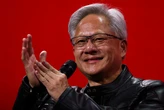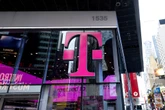An estimated 175 private jets touched down in Sun Valley, Idaho, on Tuesday, kicking off the secretive annual retreat colloquially known as “summer camp for billionaires.”
Less than a week after Congress passed President Trump’s tax and spending bill—which experts project will cut healthcare benefits for 17 million Americans, while also giving tax breaks to the wealthy and corporations—the largest-looming figures in tech, media, and finance have convened in Sun Valley for a closed-door schmoozefest and deal-a-thon.
It’s a gathering that not only ignores the current national mood felt by many Americans but stands in opposition to it.
Hosted by Allen & Co., a boutique investment bank with tentacles in media and tech, the Sun Valley conference has been a must-attend for powerbrokers since 1983. It’s like Davos minus the press access, and not even a pretense of addressing global issues.
Tectonic plate-shifting deals made at past retreats include Disney’s acquisition of ABC in 1995, the AOL-Time Warner merger in 1999, and Amazon founder Jeff Bezos’s purchase of The Washington Post in 2013. Among attendees at this year’s edition, which runs from July 8–July 13, are Apple CEO Tim Cook, OpenAI CEO Sam Altman, and Ivanka Trump—an eclectic who’s who of the elite’s elite.
Warner Bros Discovery CEO David Zaslav is also in attendance. Zaslav, you might recall, had perhaps the most well-circulated quote from last year’s outing. When a Bloomberg reporter asked him during Sun Valley 2024 whether he had a preference between Joe Biden and Donald Trump to be the next president, the CEO deflected with his reply: “We just need an opportunity for deregulation, so companies can consolidate and do what we need to be even better.”
Although his remarks could be read as an indirect Trump endorsement, since Republicans tend to favor deregulation, it’s the phrasing that speaks volumes. It encapsulates the way in which some of the country’s most powerful figures appear indifferent to how political decisions affect the lives of actual Americans, and instead seem interested solely in how they affect business.
This ambivalence is reflected in the abundance of founders and CEOs who were once vocally critical of Trump’s policies but later donated to and attended his second inauguration.
It also explains why the disconnect between the gilded world of Sun Valley and the reality of people reeling from the consequences of last year’s election feels so profound.
Inequality and an unknowable economy
The 2009 iteration of the retreat, with the global financial crisis unfurling in the background, was one of the only times in recent memory when the event’s setting may have felt even more out of step with the public mood. During that year’s retreat, a CNBC reporter asked Warren Buffett about the vibe behind the scenes at Sun Valley.
“[I]t’s a tough period,” Buffett replied. “On the other hand, this movie will have a good ending.”
The reporter pushed for clarification on just how long that ending might take to arrive. Buffett understandably could not respond with any certainty. “I know the ending will be good,” he said, “but I don’t know whether it’s a two-hour movie or a four-hour movie.
In the 16 years since, the Sun Valley set did indeed enjoy a good ending.
The 793 billionaires that existed in 2009 then had combined wealth of $2.4 trillion, while the 3,000-plus billionaires of 2025 now enjoy combined wealth of $16.1 trillion—an increase of over 570%.
Meanwhile, many Americans were apparently living in a different movie.
Middle-income households have seen their share of aggregate income shrink from 45% in 2012 to 42% in 2020. As for lower-income Americans, the federal minimum wage increased from $6.55 per hour to $7.25 during the same month as the Sun Valley retreat in 2009—and it has not gone up one penny since, despite the best efforts of labor organizers.
The economic outlook is not quite as precarious in 2025 as it was in 2009, but thanks to Trump’s erratic approach to tariffs, it feels as unstable as a rickety roller coaster.
Federal Reserve Chair Jerome Powell said back in May that the economy “may be entering a period of more volatile inflation and more regular supply shocks,” citing tariffs as the reason for his hesitation to adjust interest rates. A majority of Americans seem to agree with this analysis. In a late-June poll from Gallup, around the time that Bezos dropped a reported $20 million-plus on his wedding with Lauren Sanchez, 72% of citizens surveyed said they thought the economy was either “poor” or “only fair,” while a relatively paltry 27% described it as either “good” or “excellent.”
Anti-billionaire animosity
Another reason this year’s “summer camp for billionaires” feels out of step with the national mood is because Americans have had excessive exposure to billionaires in 2025, and many don’t seem particularly thrilled with what they’ve seen.
According to a January poll, only 12% of Americans thought it would be “very or somewhat good” for the president to rely on billionaires for advice about government policy—and that was before they got a taste of what it might look like in practice.
Despite running on a populist platform, the president—a billionaire himself, it must be said—stocked his cabinet with fellow billionaires, and has since delivered this cohort their promised tax cuts.
Before the world’s richest man fell spectacularly out of favor with Trump, the president empowered Elon Musk and his DOGE team to “reduce waste, fraud, and abuse” throughout the government. This mandate resulted in thousands of federal workers losing their jobs, various staffing crises and data breaches, and, thanks to Musk’s gleeful decimation of USAID, untold devastation and suffering around the world.
By making himself the sneering face of this effort, Musk became so unpopular that he inspired a global protest movement. All the unmistakable hostility directed toward him, however, is only a symptom of a broader sentiment.
Judging from the historically unfavorable polling of Trump’s just-passed tax bill—which had an average net favorability of -23% in every poll between May and July—Americans are fed up with a system that makes life easier for the wealthy and harder for everyone else.
Although the 2026 midterms are still a long way off, voters are already registering their complaints electorally. In last month’s New York mayoral primary, for instance, voters soundly rejected front-runner Andrew Cuomo, the disgraced former governor, in favor of Democratic Socialist Zohran Mamdani, who spent a fraction of what Cuomo’s Super PAC put into the race and won anyway.
It is very much in keeping with the substance of Mamdani’s campaign that, during the June 29 episode of Meet the Press, the candidate said, “I don’t think that we should have billionaires because, frankly, it is so much money in a moment of so much inequality, and ultimately, what we need more of is equality across our city and across our state and across our country.”
No wonder billionaires like former mayor and media mogul Michael Bloomberg, hedge fund manager Bill Ackman, and corporations like DoorDash poured millions into the race against him, and tech investors like Tyler Winklevoss have denounced the people’s choice for mayor with extreme prejudice (quite literally, in the notorious anti-Mamdani posts from Sequoia Capital’s Shaun Maguire).
This exact MCU-style crossover of tech, media, political, and financial interests also happens to comprise the demographic makeup of the Sun Valley retreat.
The epitome of growth-at-all-costs mindset
In the year since Zaslav said at Sun Valley that he preferred the candidate who would best allow companies to “consolidate,” Zaslav’s company has done the opposite. Warner Bros Discovery announced last month that it will split into two companies—and that Zaslav’s pay will be “significantly reduced.” This despite Zaslav’s much hoped-for deregulation coming to pass.
Although WBD’s fate would likely have been the same no matter who won last November, other media conglomerates might not say the same.
The July 2024 merger deal between Paramount and Skydance was reportedly the talk of Sun Valley last summer. However, Trump’s handpicked FCC chair has since slowed approval of the merger, creating the appearance that it would be contingent on Paramount settling a $16 million Trump lawsuit against Paramount-owned CBS News, for alleged “unfair” editing in an episode of 60 Minutes last fall.
On July 2, Paramount announced that it would settle the lawsuit, despite legal experts dismissing the suit as “meritless and absurd.”
This decision could set a dangerous precedent for press freedom, and may very well have a direct impact on how Americans receive their news going forward. It’s also a sterling example of growth-at-all-costs mindset—the pernicious force that drives companies to conduct mass layoffs in order to please shareholders, jam AI into every aspect of consumer goods and services, and support whichever political candidate promises to be best for business.
With its cloistered dealmaking by the biggest names in tech, finance, and media, Sun Valley is the epitome of growth-at-all-costs mindset.
At any other moment, it might have been easier to separate the event from all the political and social turmoil of 2025, but coming so soon after the signing of Trump’s tax bill, which is expected to kick 17 million Americans off of healthcare while giving venture capitalists a $17 billion loophole, it’s nearly impossible to ignore.
The masters of the universe gathering this week in Idaho don’t seem to care if growth at all costs ends up literally costing everything—as long as it’s somebody else who pays.








No comments